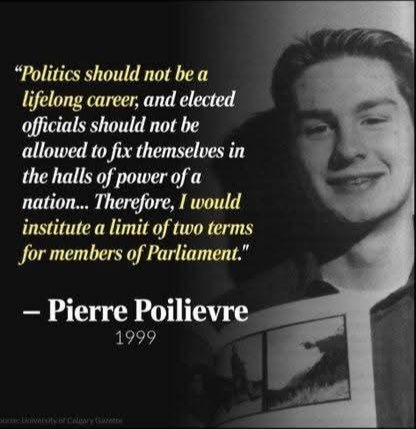As we review election results, it is clear that fear-based voting accomplished the opposite of what voters wanted.
In riding after riding, Canadians voted Liberal hoping to stop Poilievre. Many of those voters would have voted Green but thought 2025 was the year to vote "strategically." As a result, Mike Morrice, the heroic Green MP for Kitchener Centre who was favoured to win, had many voters vote Liberal instead of Green, thus electing a Conservative. The same thing happened in Nanaimo–Ladysmith where the smart vote was Green, but guessing wrong elected a Conservative. I faced the same headwinds in Saanich–Gulf Islands where I had to plead with voter after voter that voting Liberal could elect the Conservative… The same fear-based voting decimated the NDP. This was an election where smaller parties were
squashed in the two-horse race, as though we directly elect our prime minister.
Fear-based voting is driven by our perverse voting system called "First Past the Post." Justin Trudeau won a majority in 2015 in large part because he promised that 2015 would be the last election under First Past the Post.
It is not that First Past the Post is unfair to the Green Party–First Past the Post is unfair to the voter! We must not risk a Trump-like leader in Canada in some future election having 100% of the power–over both the executive and the legislative–with less than 50% public support. We can and must reform our voting system.
We are launching a grassroots cross-country campaign to force the Liberals to live up to their 2015 campaign promise, "Better Late Than Never!" And it means we have to convince them that the risk is real of a False Majority government in the next election. The Conservatives could gain 100% of the power with 40% of the vote. The 2025 election showed how unfair voting meant that thousands of votes did not count. MPs won seats with the narrowest of margins–one MP won on the basis of a single vote, eliminating the ballots of thousands of voters. It is only under FPTP that a prime minister can have total control without the support of most Canadians.
Historically, NDP governments in Nova Scotia, British Columbia, Ontario, Saskatchewan, and Manitoba all had the chance to abolish First Past the Post for provincial elections and never did. Even when Jagmeet Singh had the opportunity to include electoral reform in the Confidence and Supply Agreement (CSA) with Trudeau, he failed to do so. This is why the Green Party's commitment to ending FPTP is crucial for a fairer, more democratic Canada.
To launch this campaign, we need to raise $100,000 before Parliament resumes on May 26. It is an ambitious goal, but it is realistic. In Parliament, I will put forward private members' bills and table petitions, while working on every MP to sway their vote as the grassroots mobilizes to speak to every MP in their local offices.
If you believe in a Canada where every vote counts, please donate now and sign up to be a volunteer leader for your community!
Donate now to help us reach our $100,000 goal and help us build a better democracy together.
With deep gratitude for your support,
Love,
Elizabeth
Elizabeth May, O.C.
Leader of the Green Party of Canada
MP for Saanich–Gulf Islands

📑 Why We Must Keep Advocating for Proportional Representation